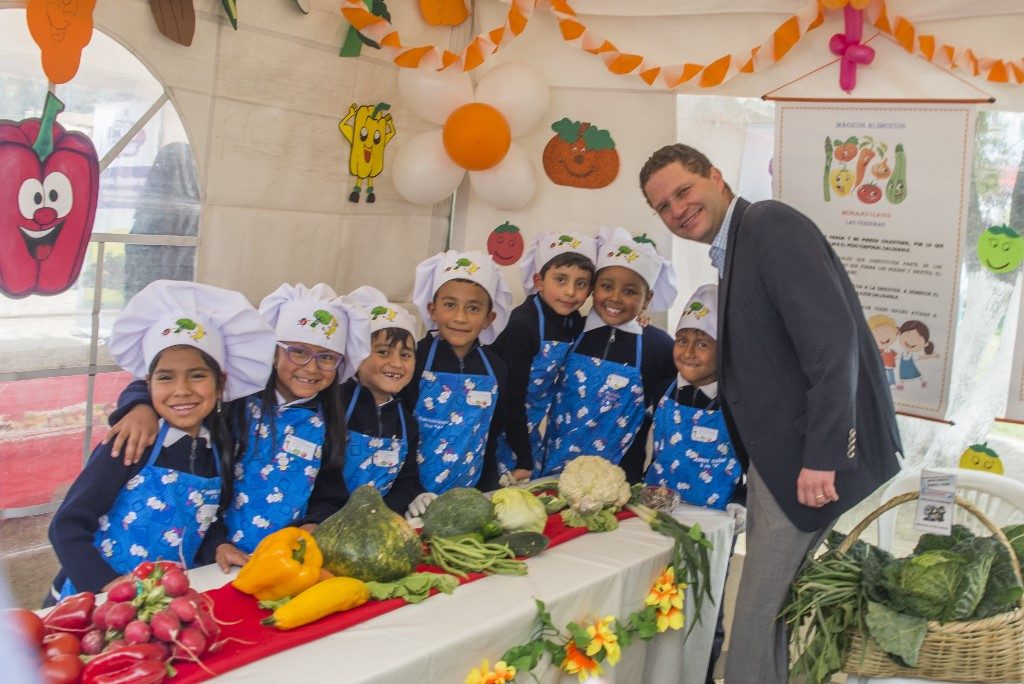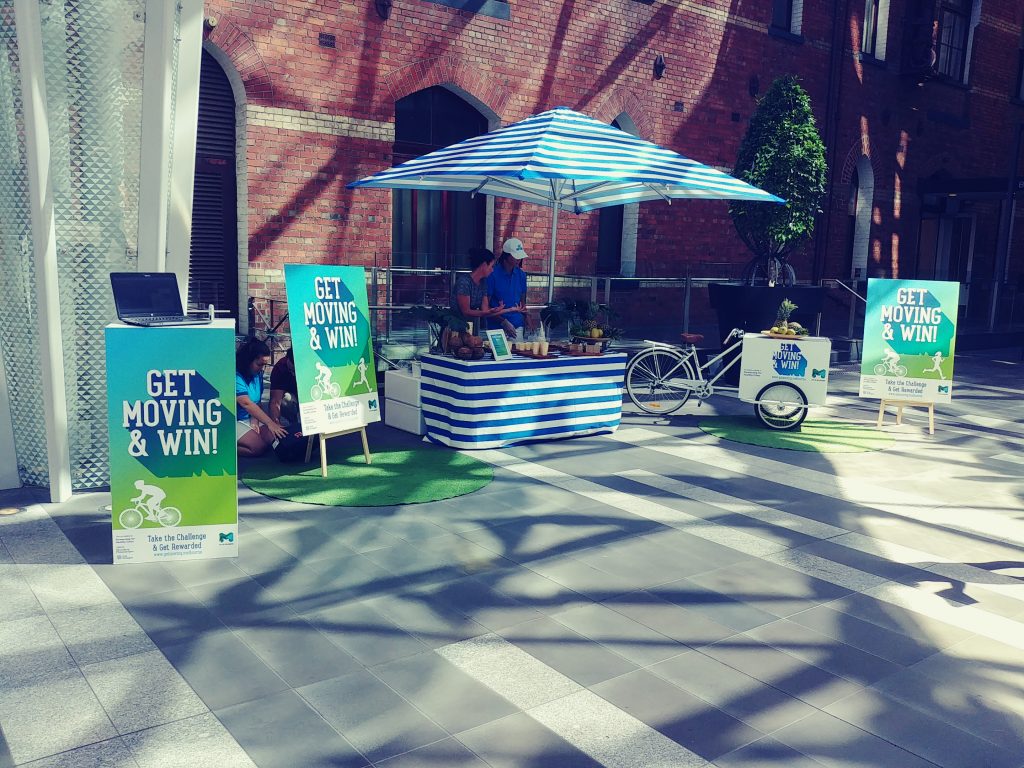
Mayor Mauricio Rodas with schoolchildren in Quito, Ecuador at an outdoor nutrition festival.
Last week, two more cities announced their Partnership for Healthy Cities initiatives, with Melbourne unveiling a mobile rewards app to encourage the city’s workforce to do more walking and biking, and Quito rolling out a plan to provide healthier food at school canteens.
Melbourne’s new app, which is called Get Moving, sends out walking and biking challenges; users accumulate points and can win prizes. The announcement, on Tuesday, March 6, kicked off a week of recruitment events at office buildings and other workplaces throughout the city. Later this year, a mass media campaign will encourage less active citizens to try using the city’s extensive bike lanes and pedestrian walkways, even on an occasional basis.
The Quito announcement came on Wednesday, March 7 at an outdoor Nutrition Festival that featured Mayor Mauricio Rodas and hundreds of schoolchildren, many of them with elaborate presentations involving fruit, nuts and other healthy snacks. Six school districts in the Ecuadoran capital will bring the nutritional quality of food sold through school canteens in line with national standards. A survey will measure schoolchildren’s height and weight, so that a baseline can be established to help the city measure the long-term health outcomes of the program.

A booth promoting the new app, Get Moving.
Melbourne and Quito are just two of 54 cities in the Partnership for Healthy Cities, a two-year project led by former New York City Mayor Michael Bloomberg in his role as World Health Organization (WHO) Global Ambassador for Noncommunicable Diseases (NCDs). Vital Strategies and WHO are the implementing partners, with funding from Bloomberg Philanthropies.
The idea behind the Partnership is that city leaders have a crucial role in combatting the rise in NCDs, especially with more than half the world’s population living in cities now.